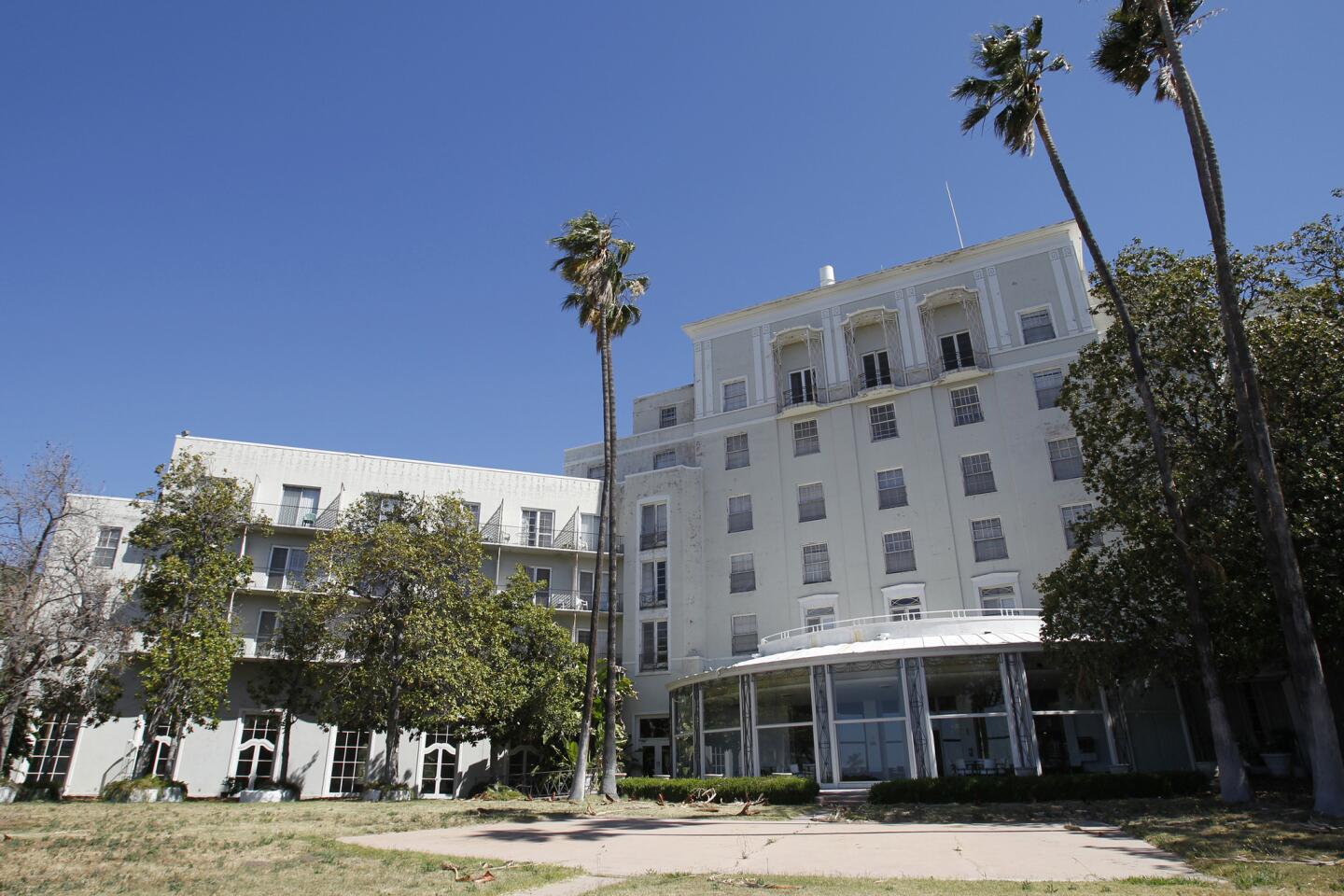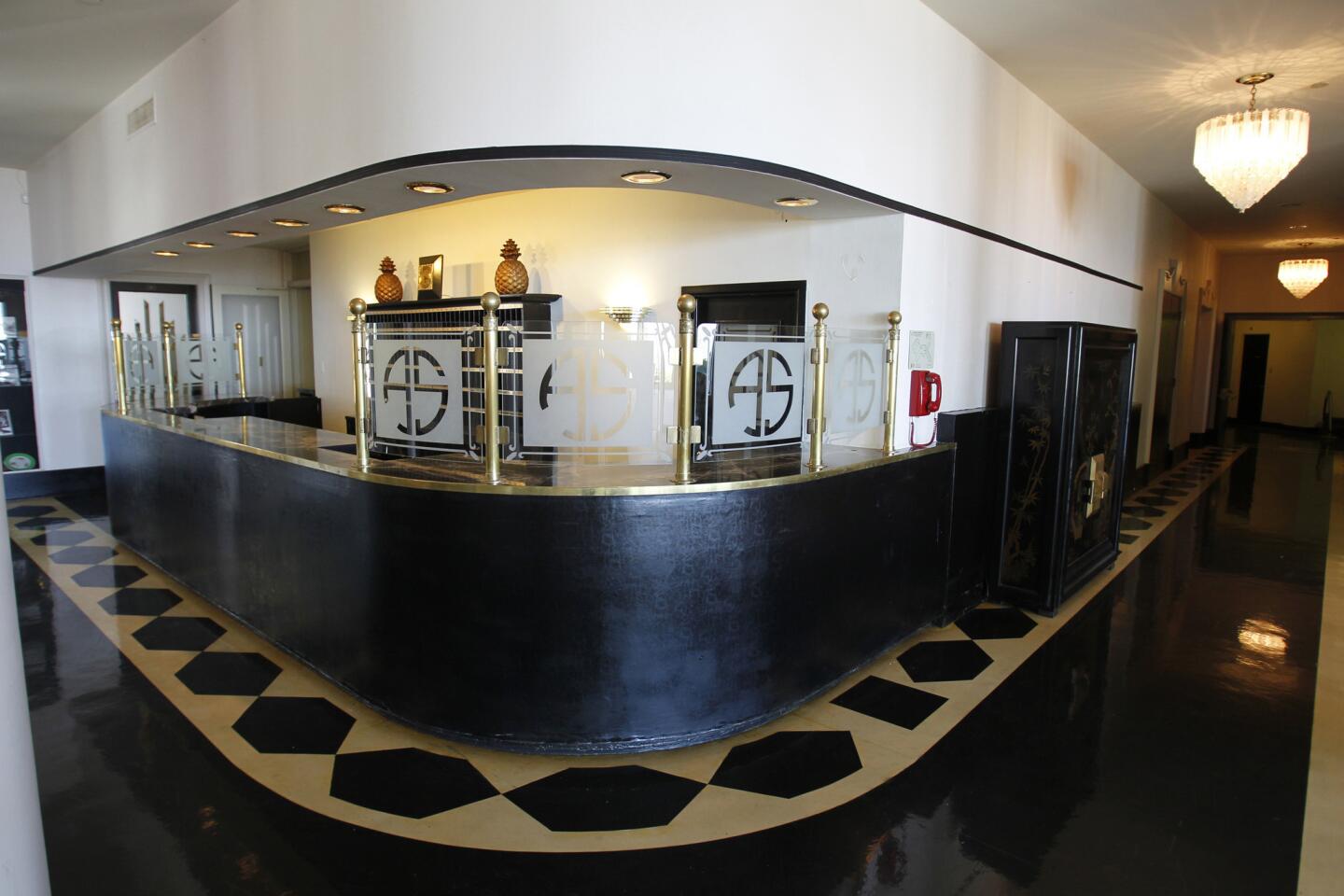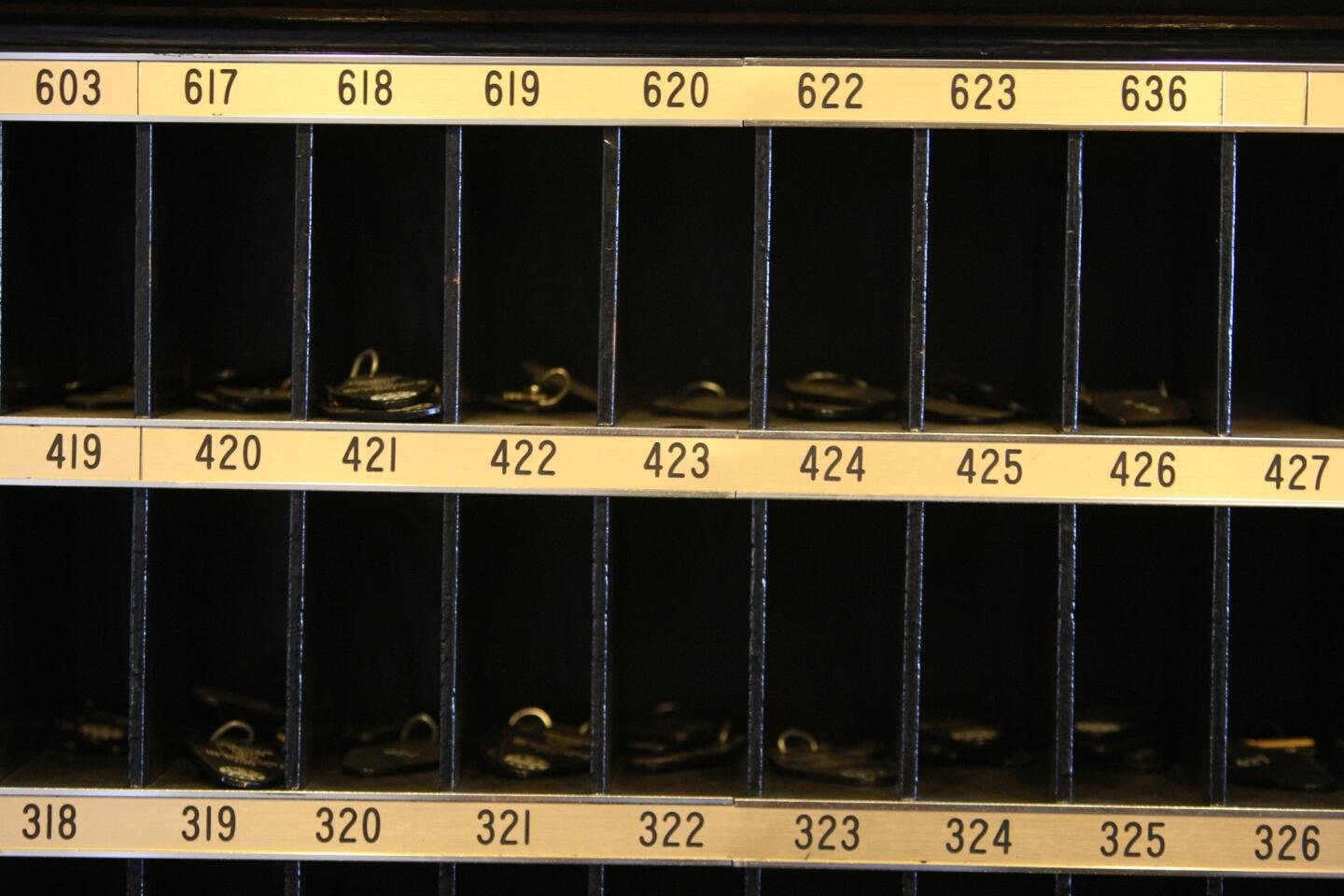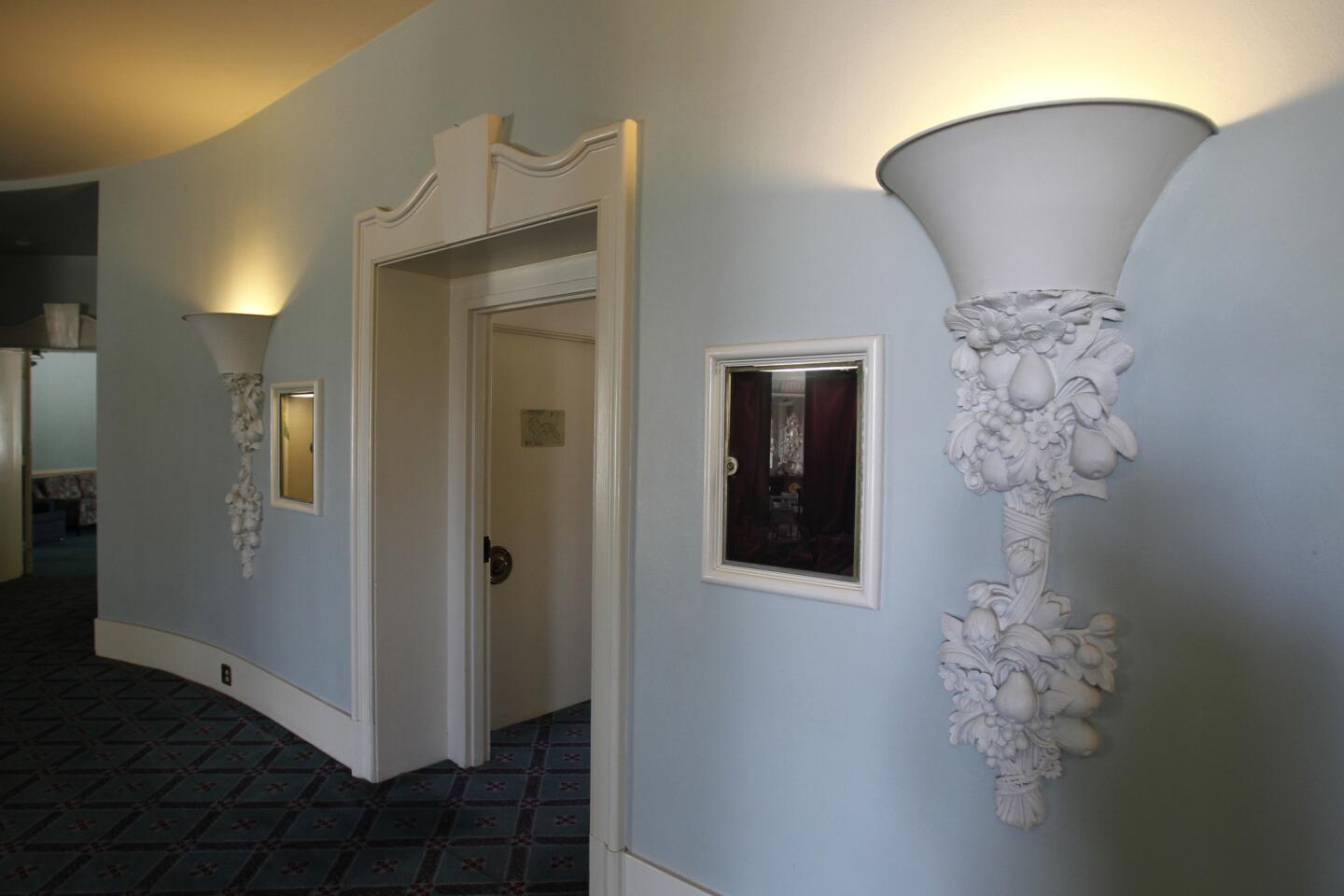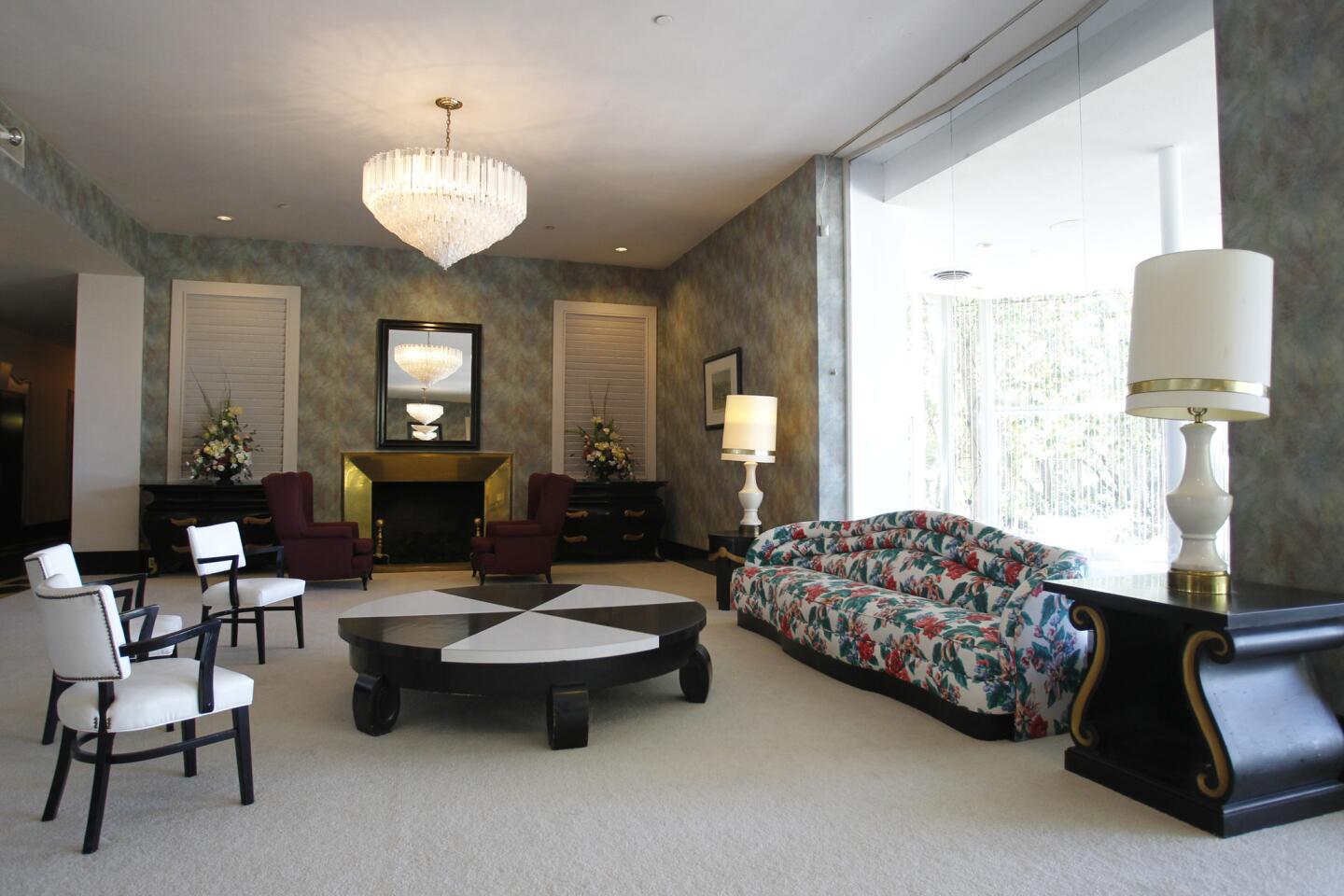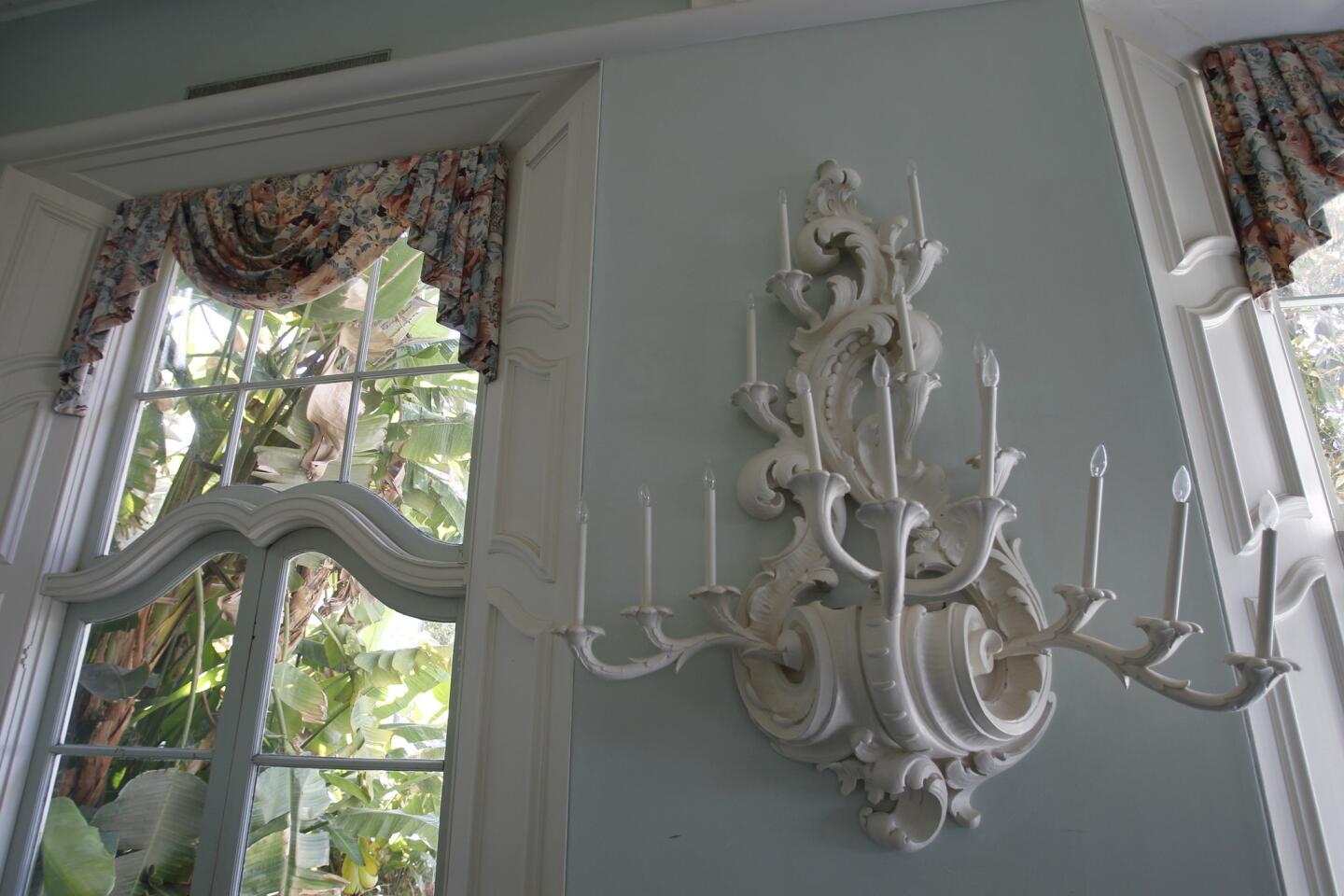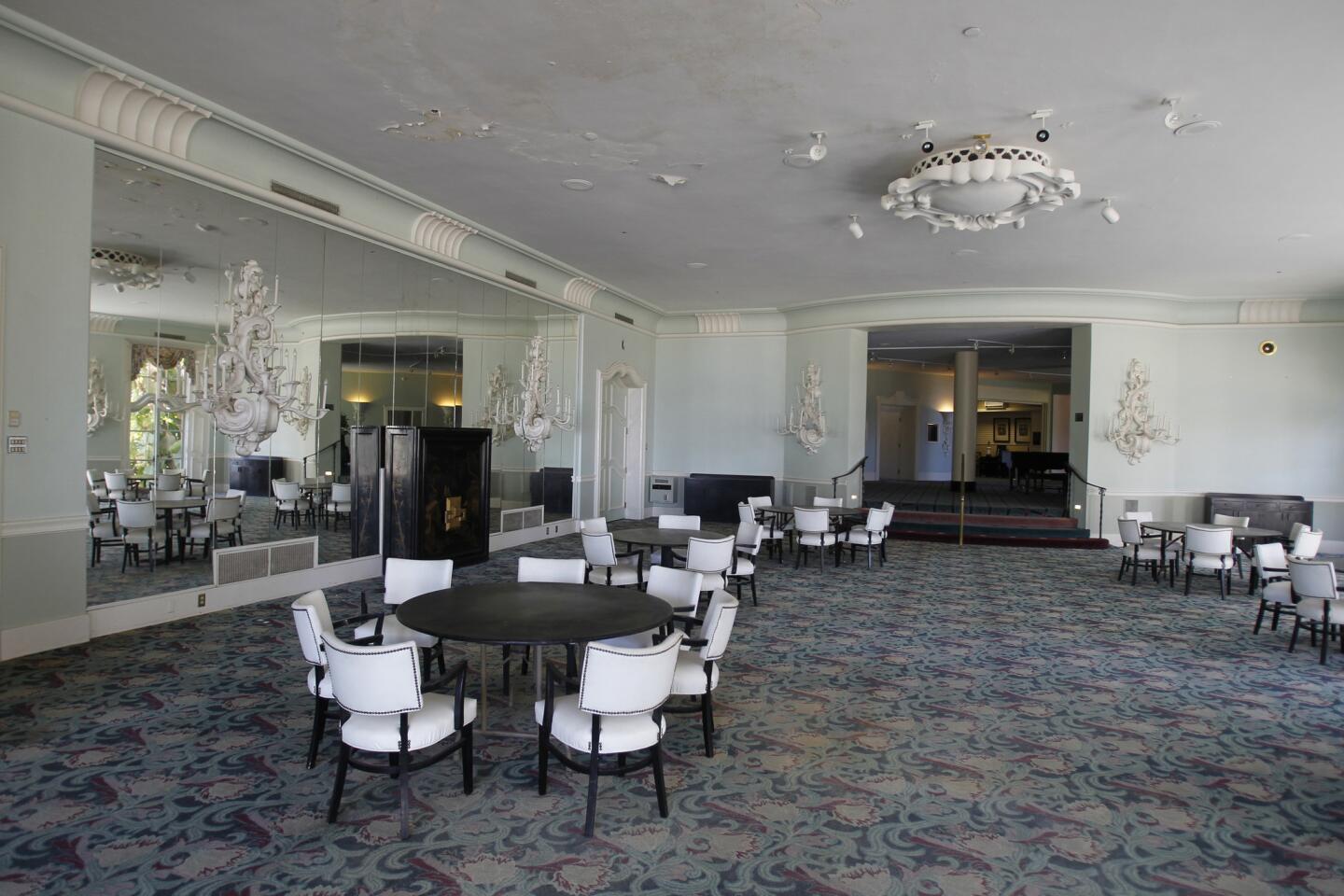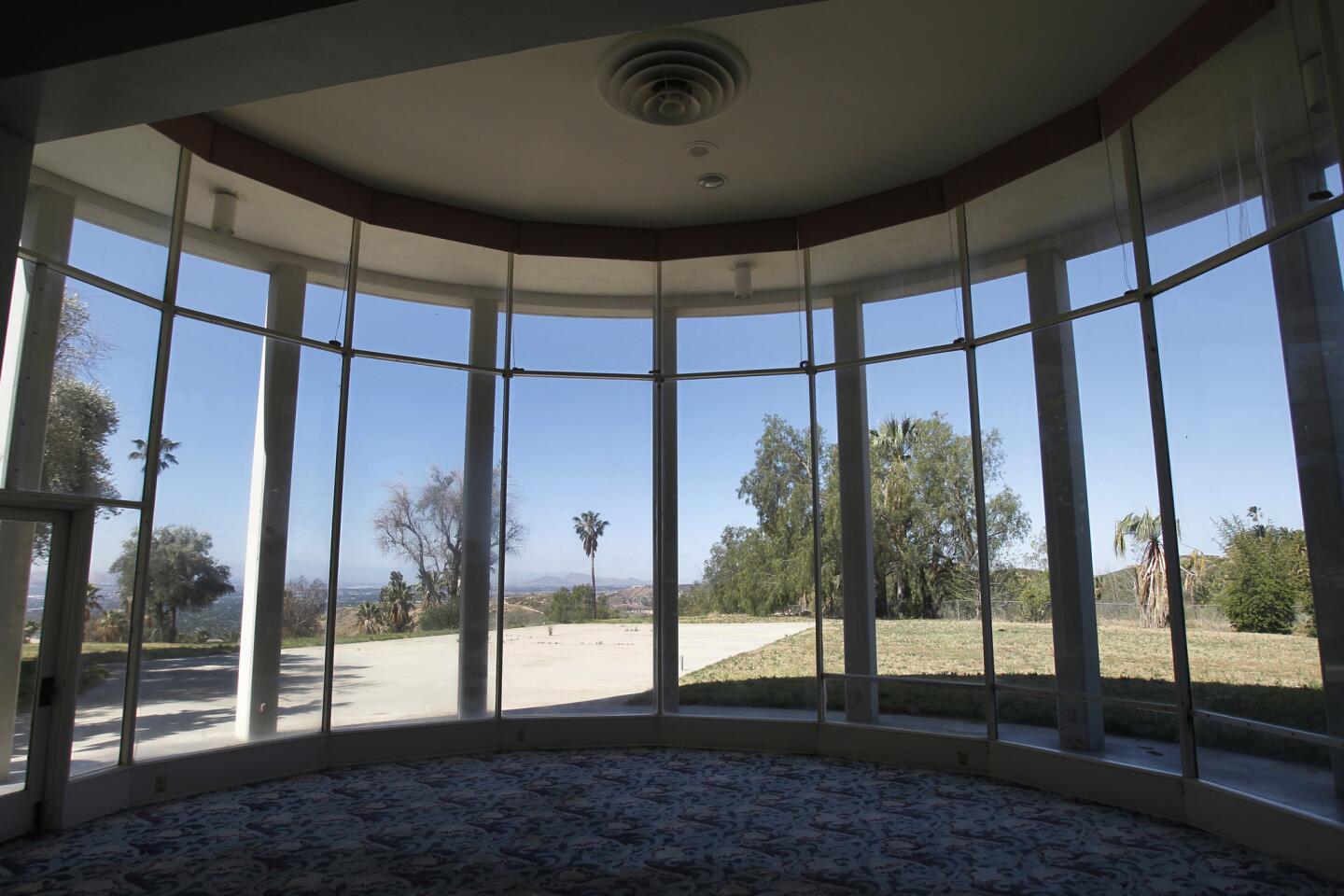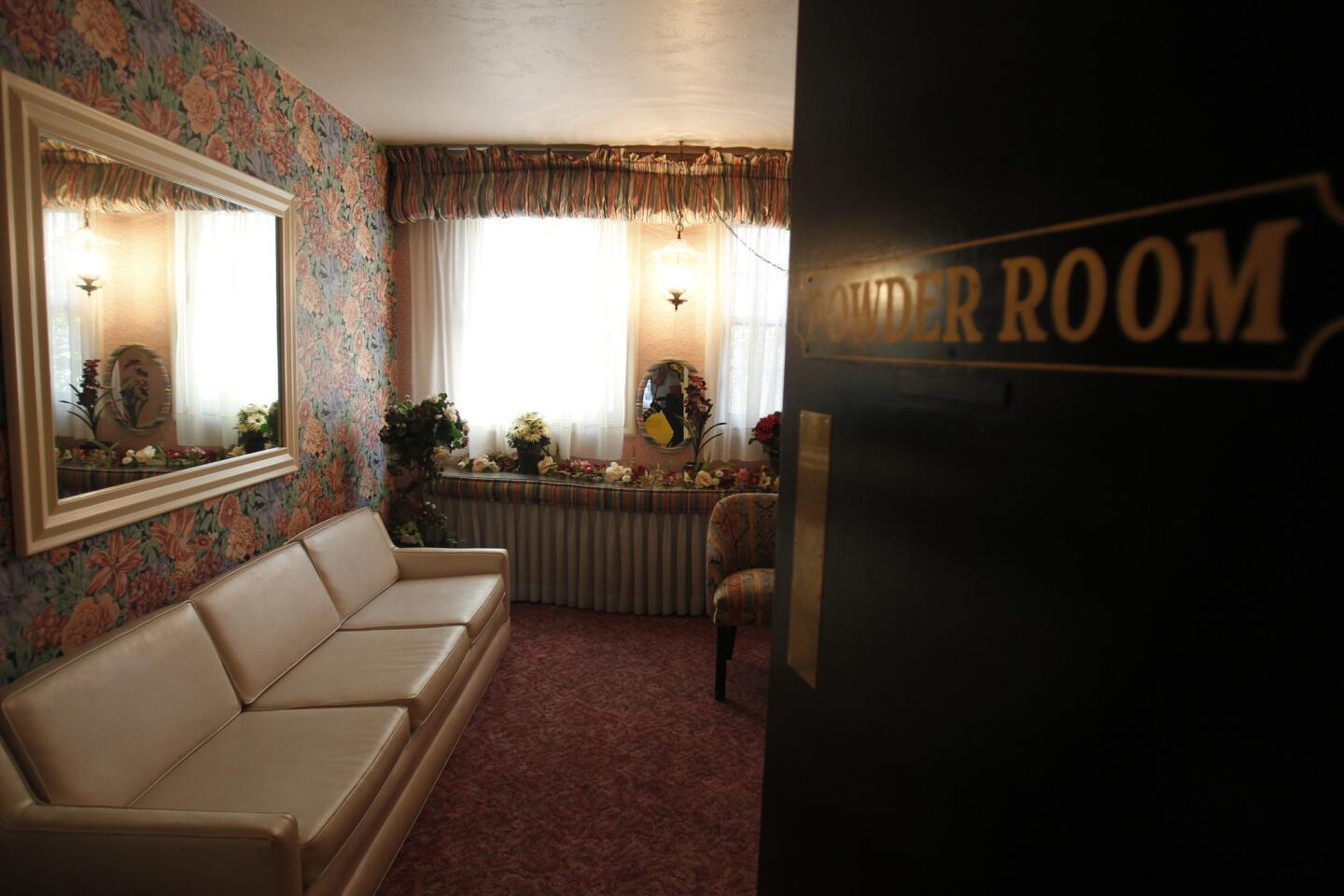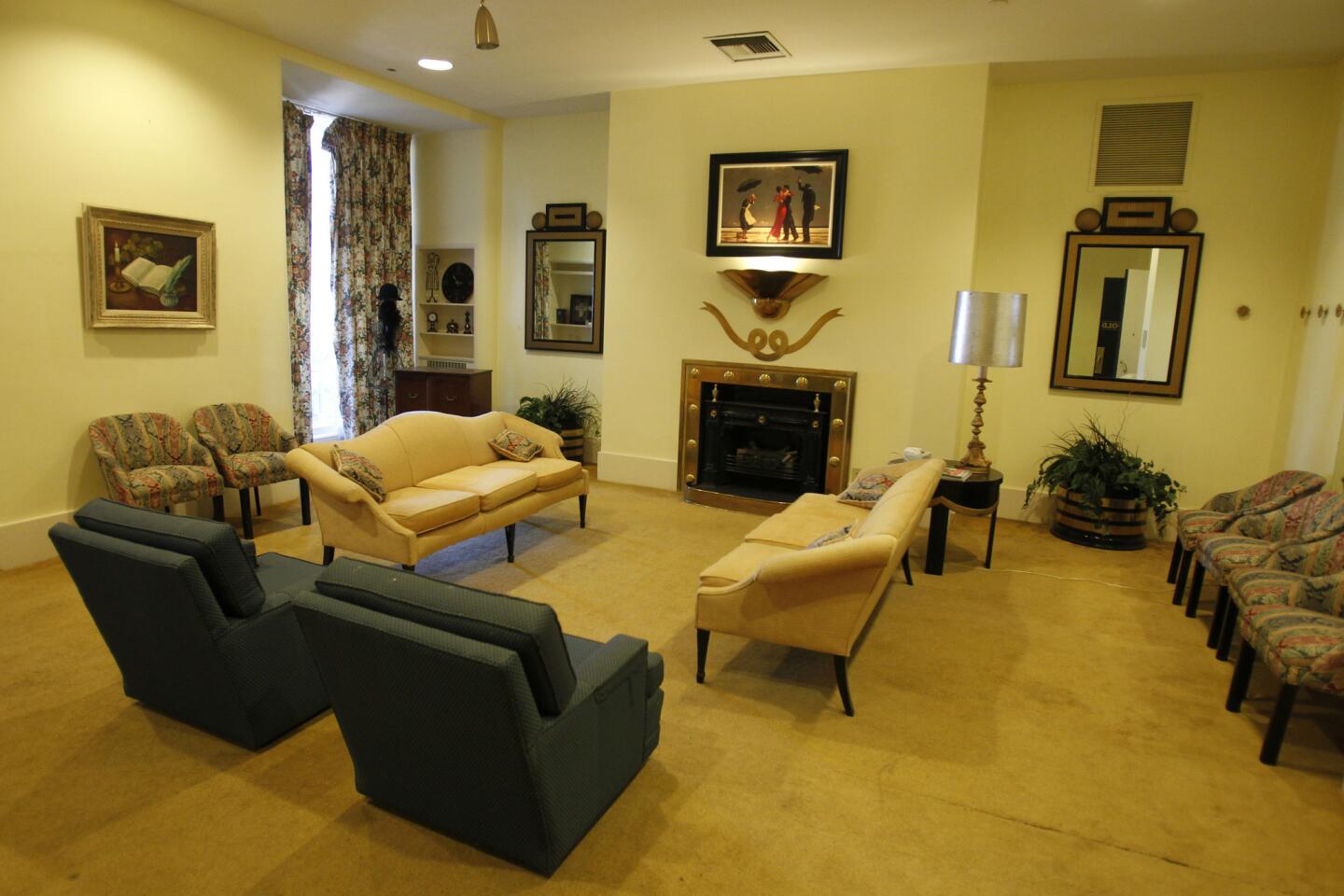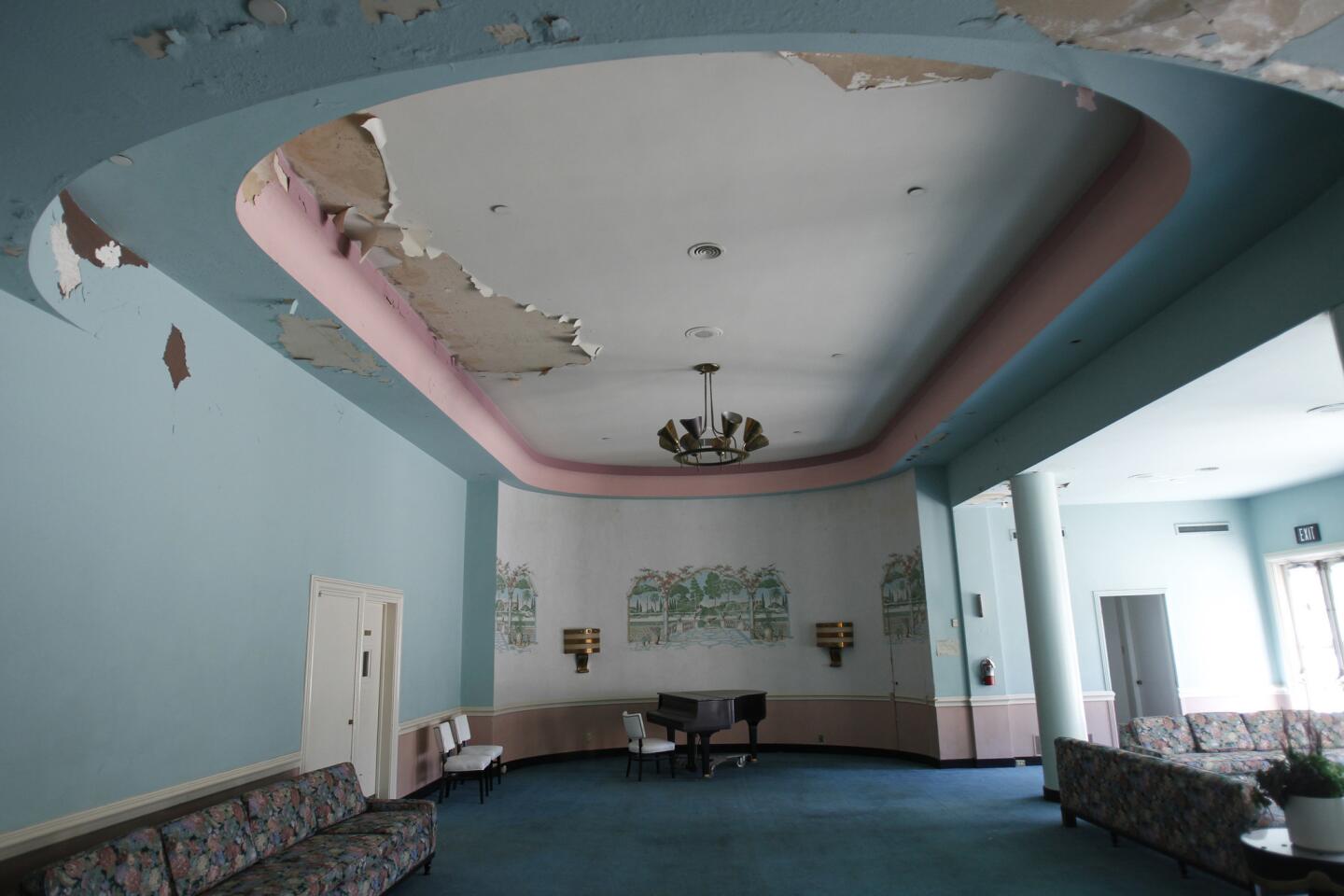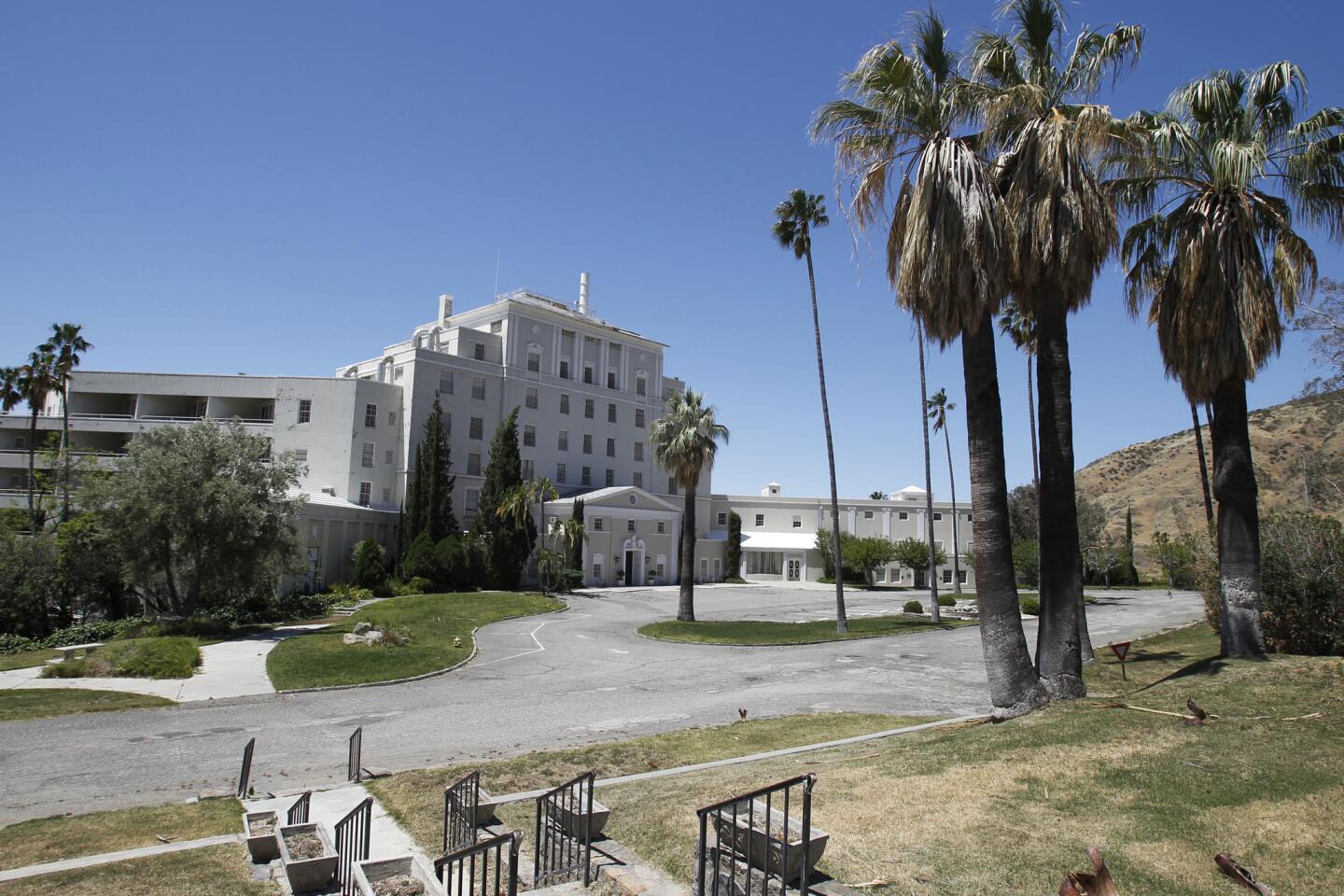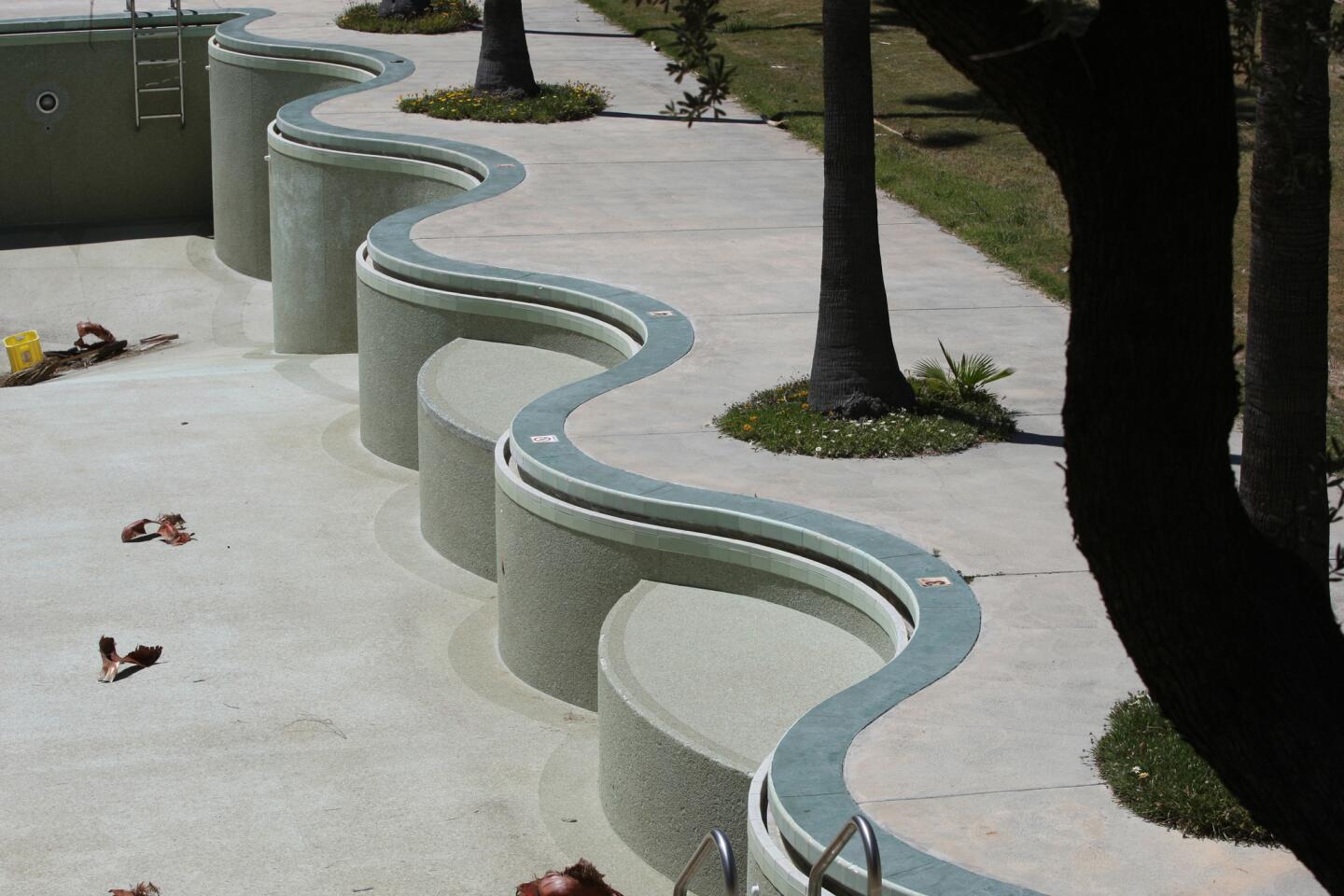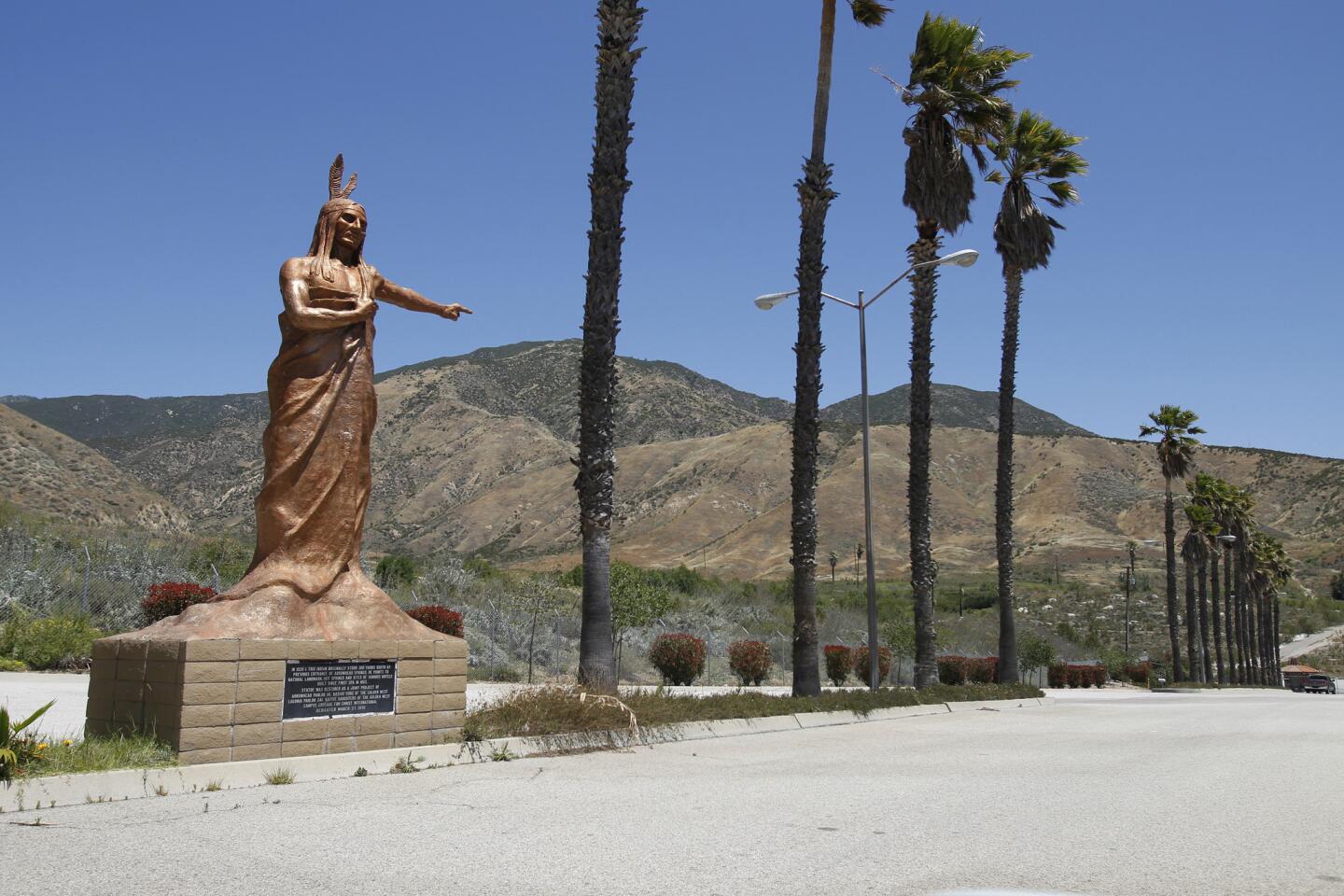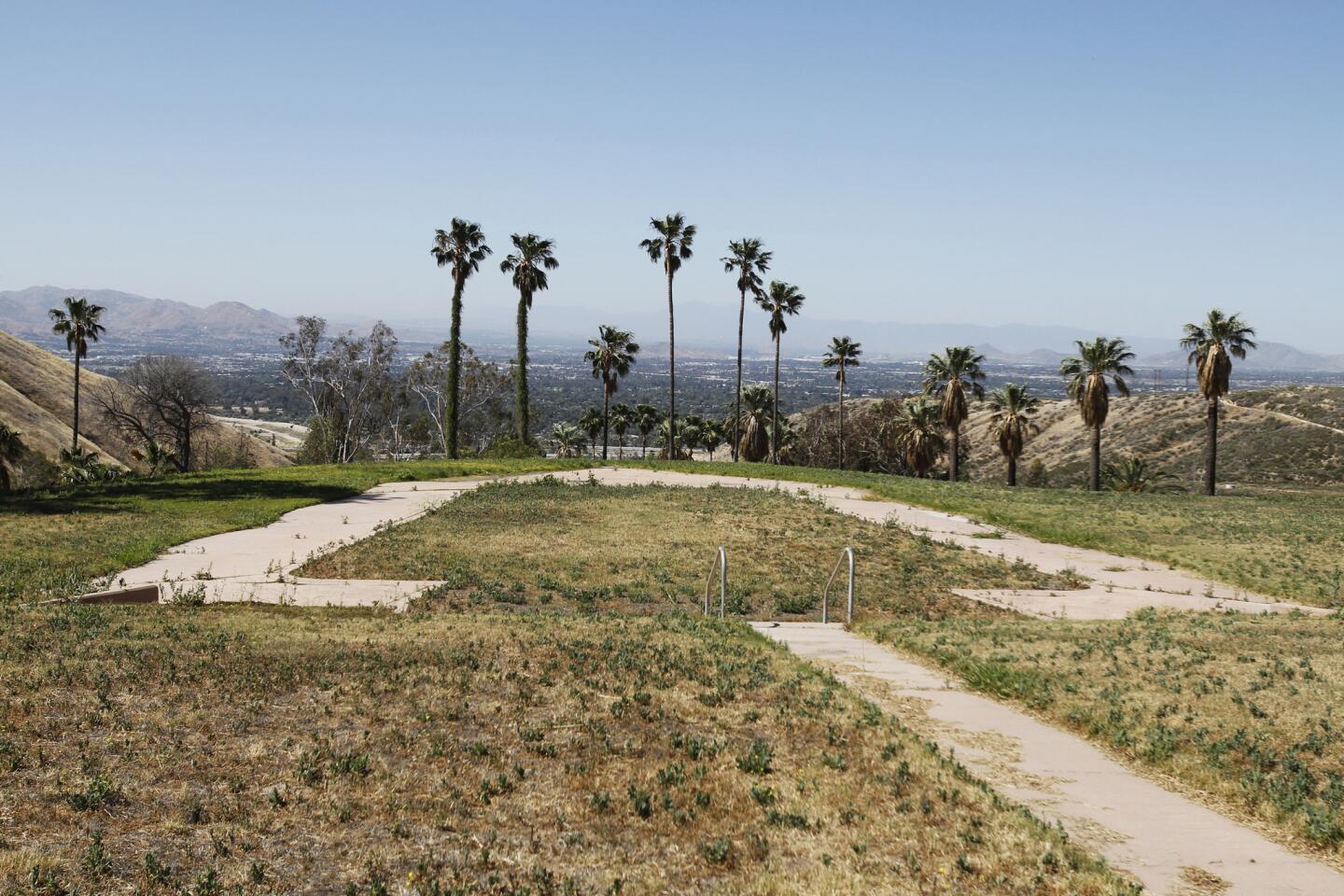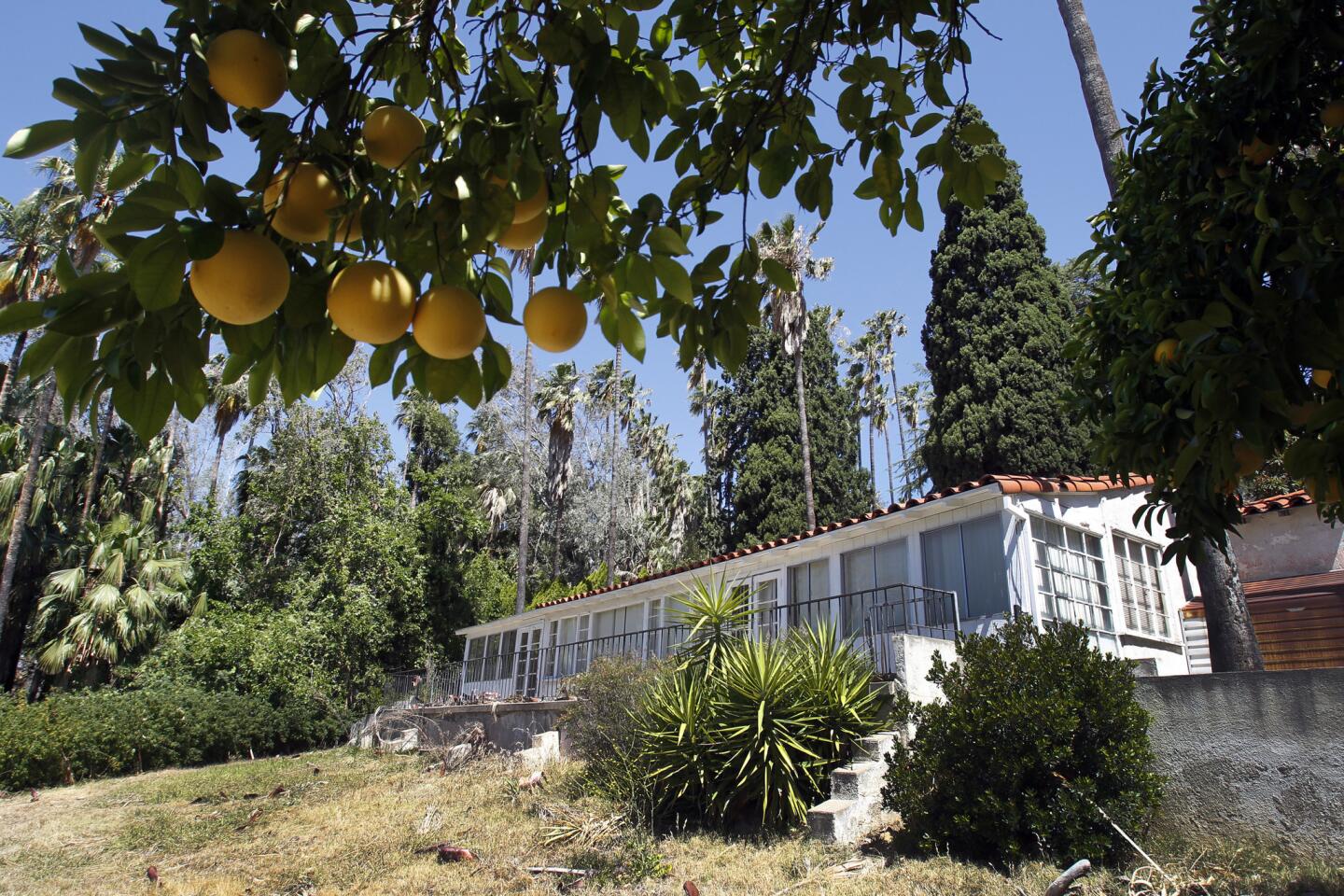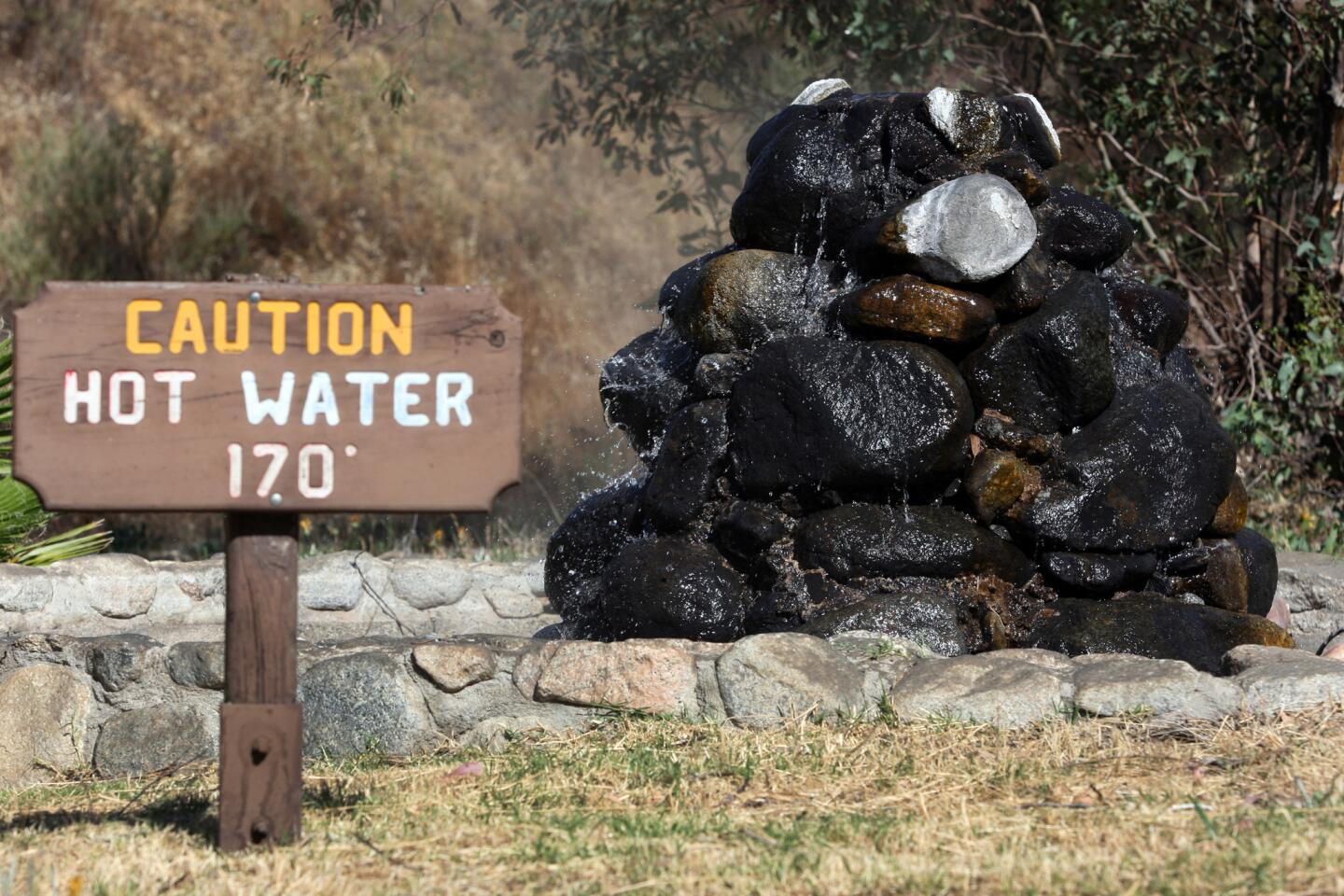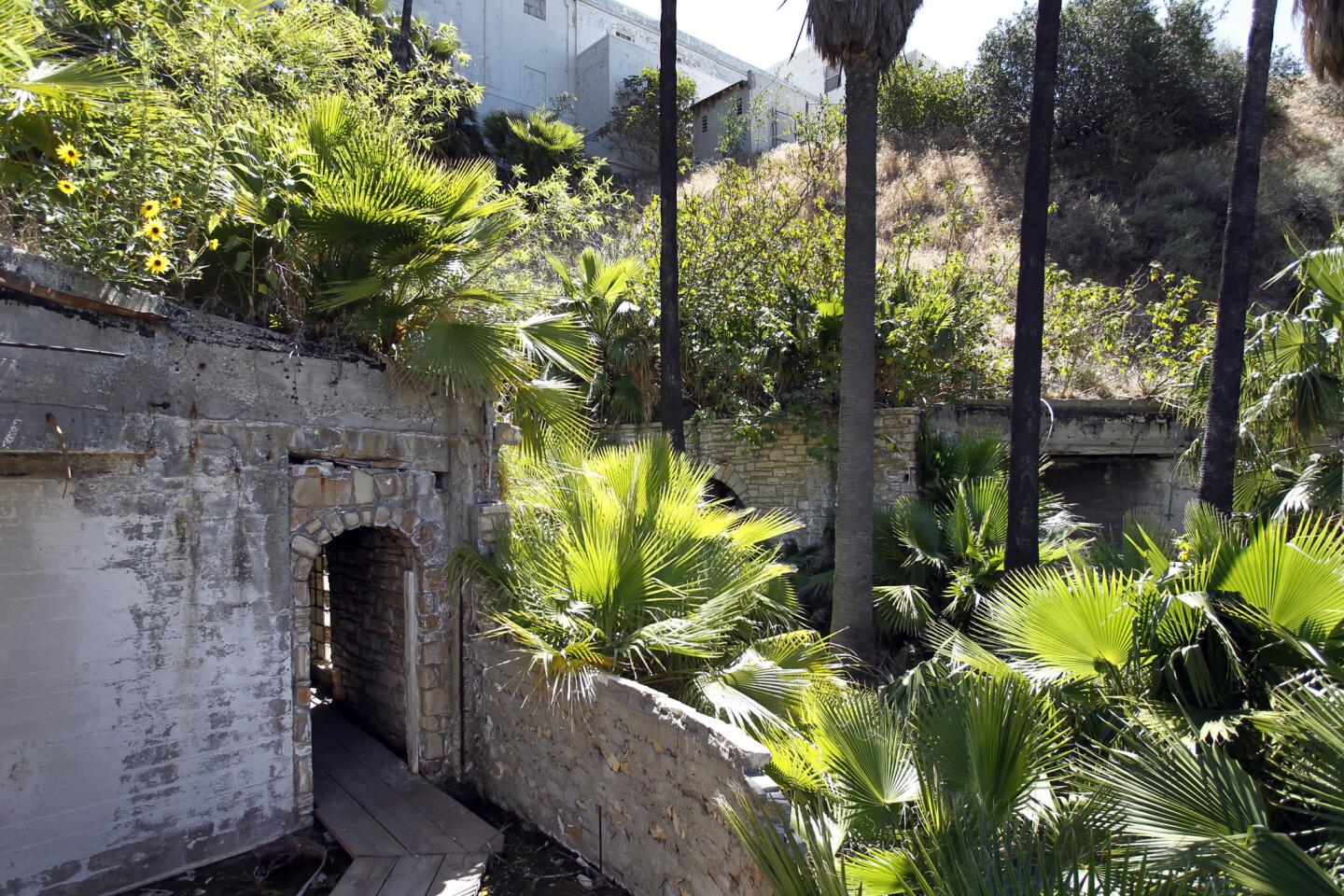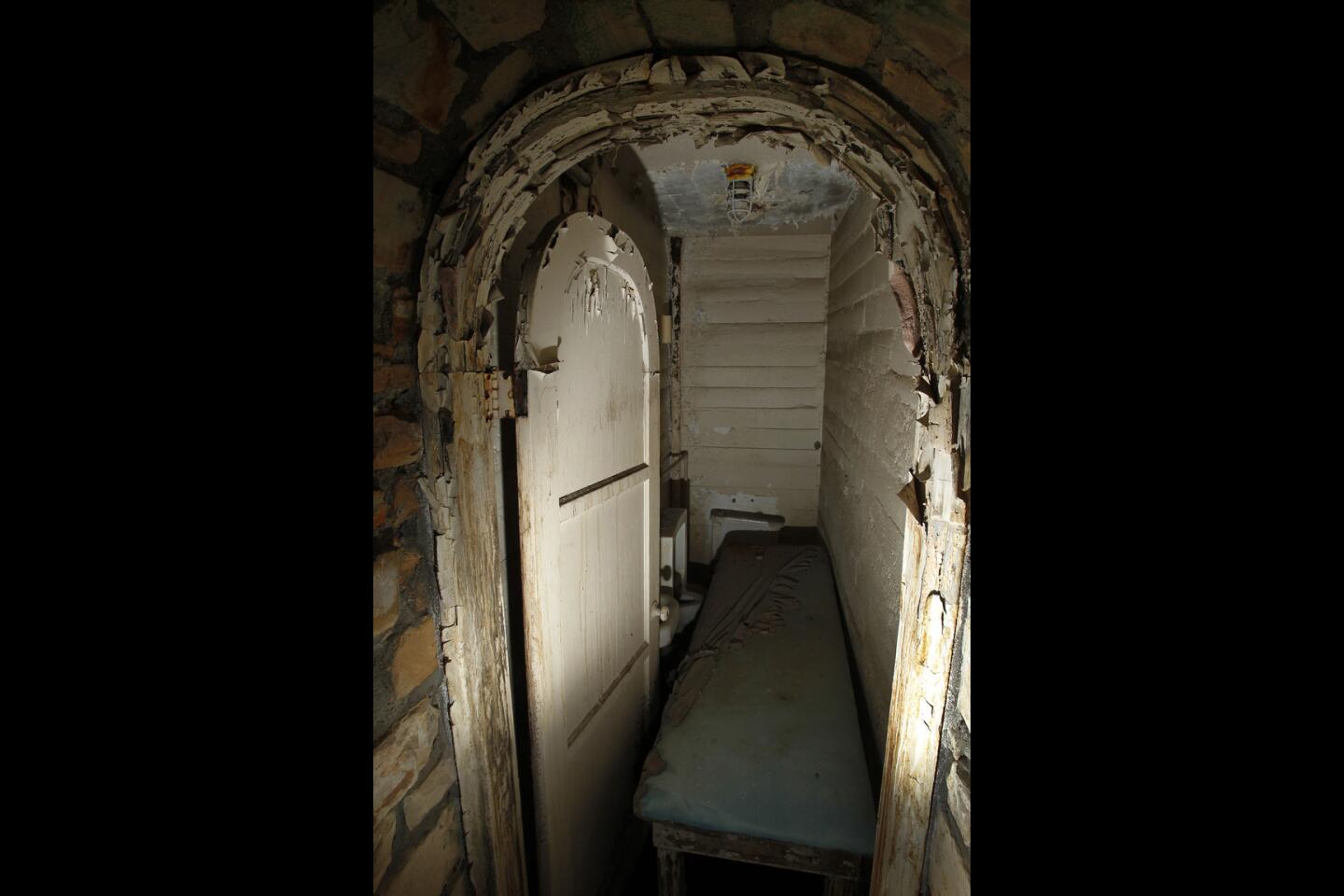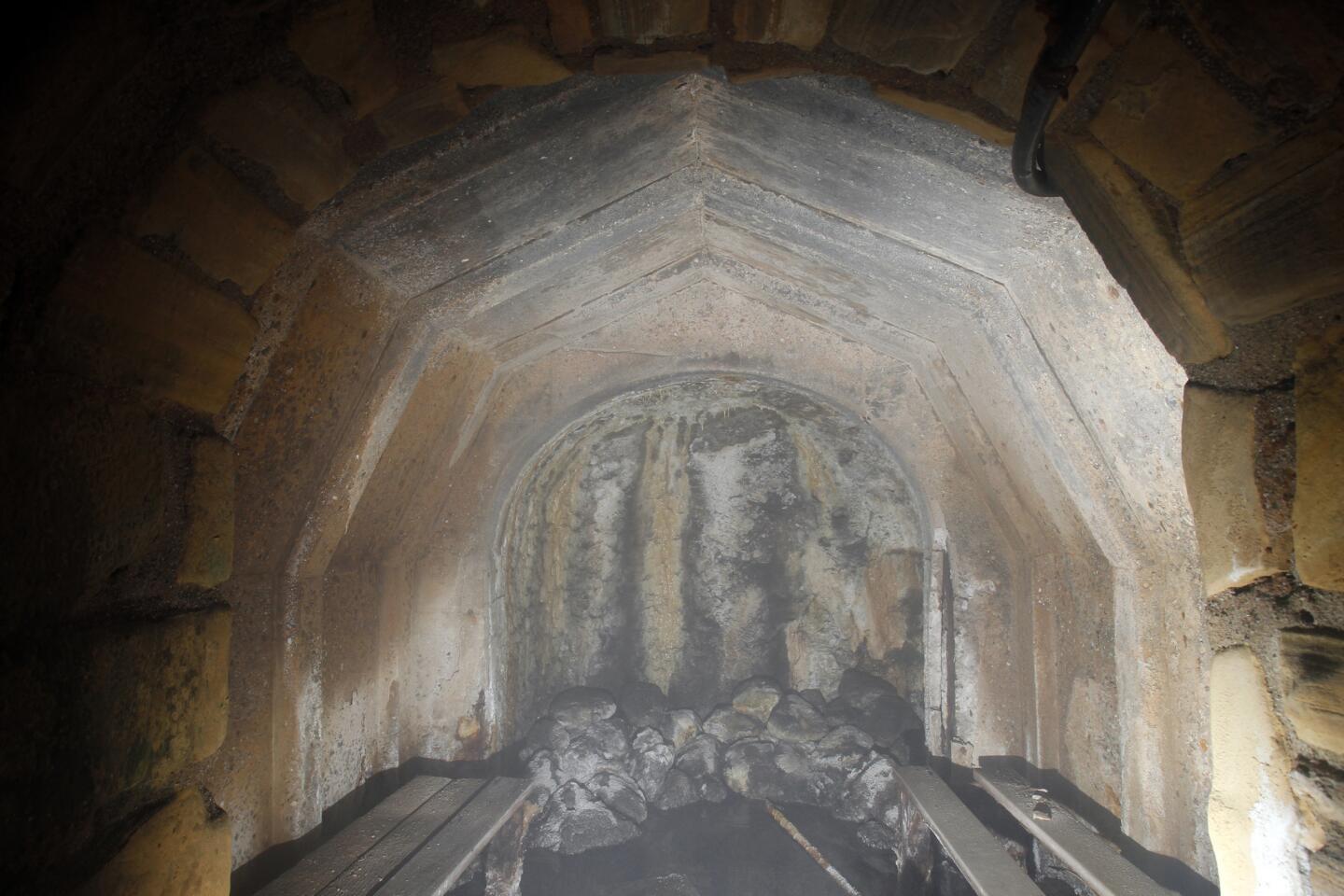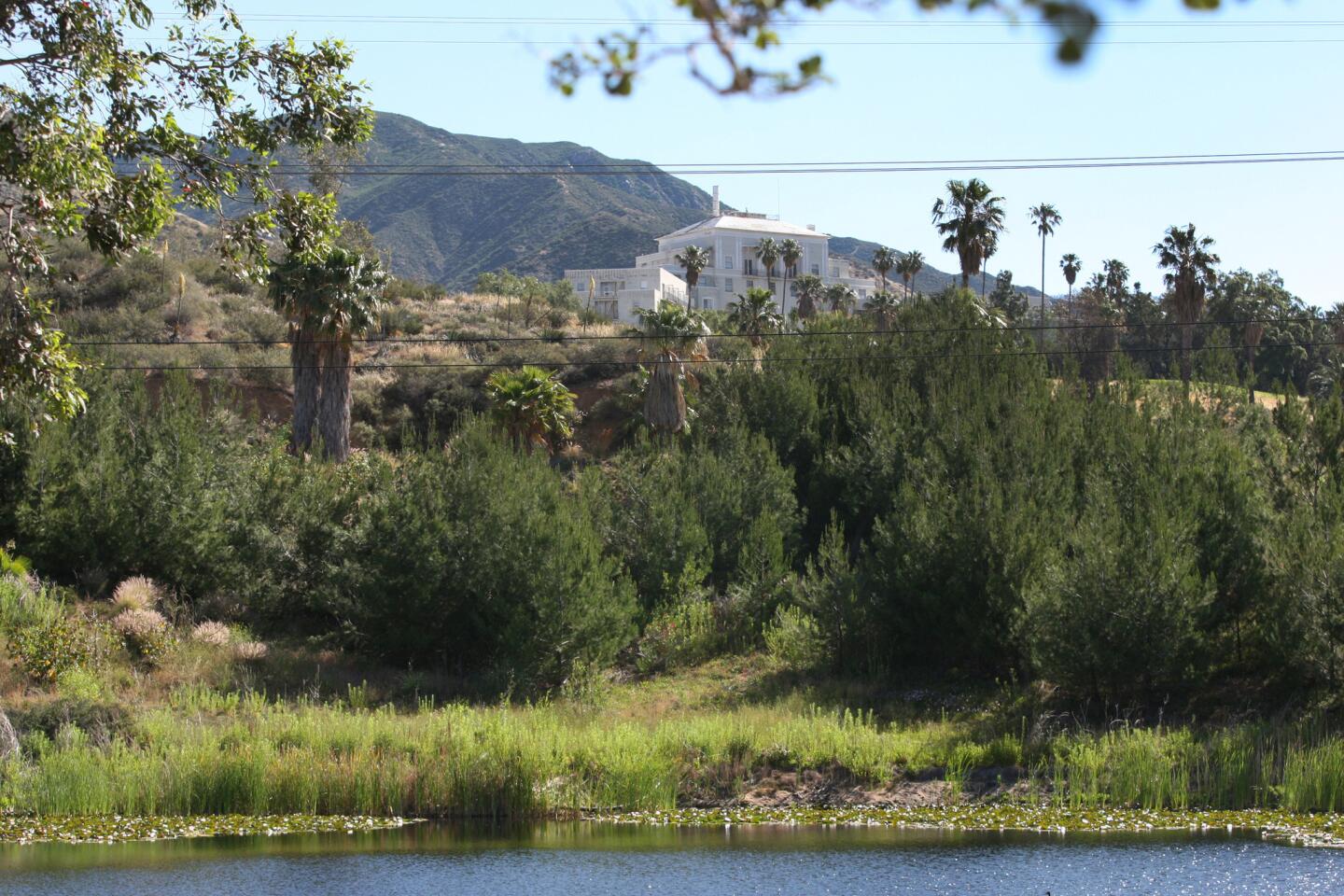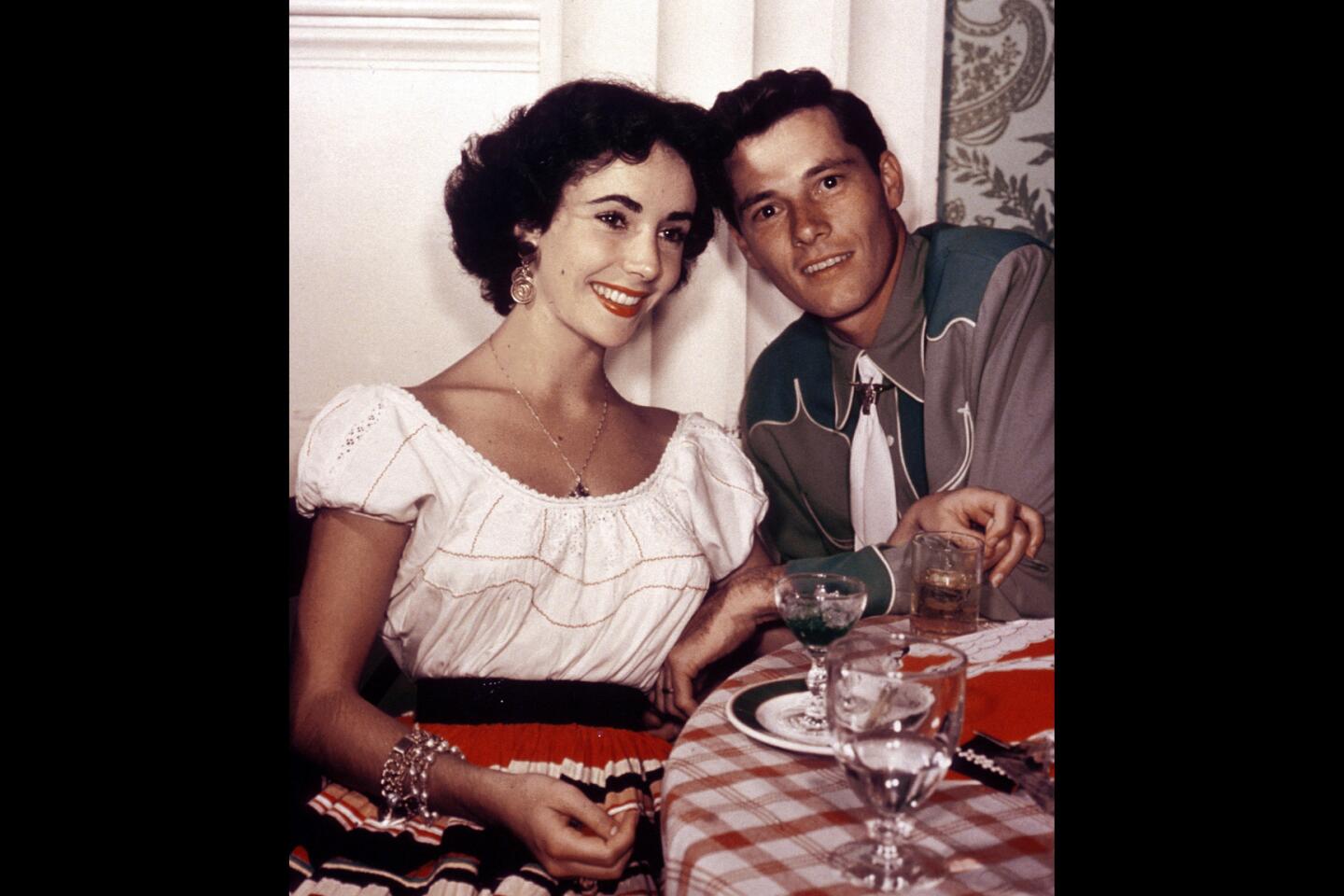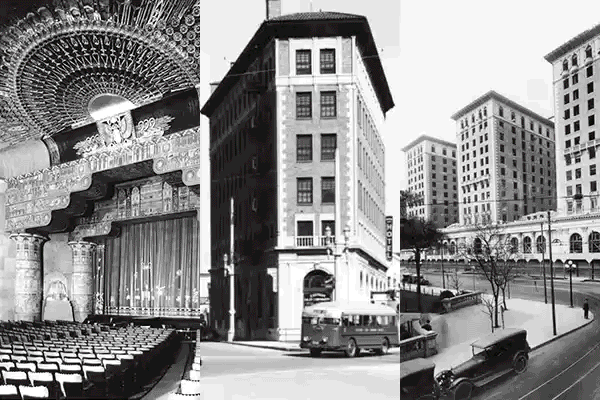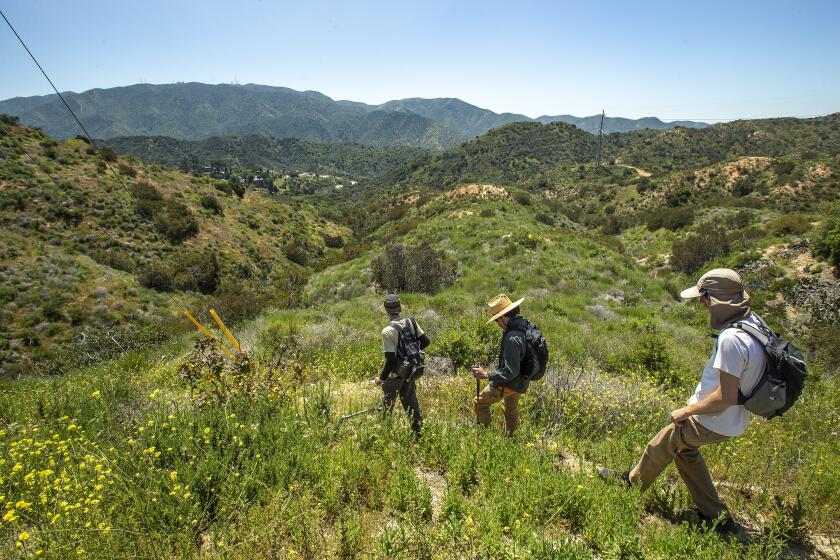Former playground of stars in San Bernardino is ready for rebirth
A legendary hot springs hotel in San Bernardino that was a playground for celebrities in the 1930s and ‘40s may be restored to glory as a plush resort after being closed to the public for nearly 60 years.
Arrowhead Springs lies at the foot of a mountain with an arrowhead-shaped rock formation pointing down at the nearly 2,000-acre property where scalding hot water bubbles up from the earth. From the time of the Civil War, bathing in the spring has been considered curative — or at least pleasurable.
The unoccupied complex is being sold by the interdenominational ministry once known as the Campus Crusade for Christ. Now called Cru and based in Orlando, Fla., the owner maintained the former resort as a conference center until 1999.
Over the last century, a number of hotels were built on the site that is now for sale at $57 million. The latest hotel was designed by famous Los Angeles architect Paul Revere Williams and opened in 1939 with the assistance of Judy Garland, Al Jolson, Rudy Vallee and the Marx Brothers.
Elizabeth Taylor, age 18 at the time, honeymooned in the penthouse there in 1950 with her first husband, Conrad “Nicky” Hilton.
There are also bungalows where celebrities cavorted in privacy and a scallop-edged swimming pool named after aqua star Esther Williams, a frequent guest. She and former Olympic champion Johnny Weissmuller put on a swimming exhibition there for convalescing Navy men during World War II, when the hotel was temporarily converted to a hospital.
Although Paul Revere Williams is widely considered one of the best California architects of the last century, the hotel’s layout is now outdated and the 135 rooms are too small by modern luxury-resort standards.
“It’s built for a different time,” said El Segundo real estate broker Tom Turley of JLL.
The hotel failed in 1956, a victim in part of the rapid expansion of air travel that enabled wealthy Los Angelenos to venture much farther away than San Bernardino on their holidays. The property was purchased in 1962 by the Campus Crusade for Christ, which used the hotel for its headquarters and made some additions, including a 2,300-seat amphitheater.
To enhance its value for a sale, the Cru ministry has helped get the property annexed by the city of San Bernardino and secured approvals for substantial additional development on the site, Turley said.
Prospective buyers include resort operators and housing developers, he said. The city will allow construction of 1,350 residences, an additional 800,000 square feet of commercial space and conference facilities, and an 18-hole golf course.
Some investors are considering building an aggressively “green” resort and housing complex that would rely on geothermal, solar and wind power, Turley said. “The whole development could be off the grid.”
Most of the former celebrity hot spot will remain open space, said Michael McKinney, chief of staff to San Bernardino Mayor R. Carey Davis.
“We believe about 400 acres could be potentially developed as a hotel with some residential and shopping,” he said.
The city wants the hotel restored, though a new owner could reduce the number of rooms to make them larger, McKinney said. The 11 bungalows, each named after a celebrity, “could be refurbished to be like what the Hotel Bel-Air has now,” he said.
More hotel rooms could be added, he said, and a large modern spa could be built to capitalize on the hot springs. It would be part of a long tradition.
The hot springs were well known to local Indians and then Spanish missionaries who called the site Agua Caliente. Prospector David Noble Smith set up the first structures in the 1860s in the hope of treating consumption, as tuberculosis was known at the time.
Dr. Smith, as he called himself, enlarged his facility into a hotel and brought in new partners who added an ornate veranda to the exterior. They wanted to build a bigger facility, but Smith resisted expansion.
Three days after he died in 1885, the hotel burned down and the new owners from Los Angeles rebuilt a three-story inn that was the largest hostelry in the San Bernardino area. It was destroyed by fire during a Fourth of July celebration in 1895.
A third hotel was built by Seth Marshall in 1905, according to the city of San Bernardino. It was purchased by a Hollywood consortium in 1930 and promoted as a luxury resort that attracted such luminaries as Loretta Young, Mary Pickford, Spencer Tracy and Humphrey Bogart.
That grand hotel lasted until 1938, when it was destroyed by a forest fire. The following year, a new six-story hotel opened that still stands.
Williams, who also designed numerous celebrity homes, imbued it with an Art Deco flair. Celebrities and high rollers returned until World War II, and in 1944 the inn was converted to a Navy hospital.
Well-known hotelier Conrad Hilton bought the property in 1952 and redecorated the interior in a Western motif. The hotel continued to lose money, however, and Hilton sold it to another famous hotelier, Benjamin Swig, owner of Fairmont Hotel Corp.
The hotel was losing $1,500 a day when Swig closed it in 1956.
McKinney, the San Bernardino mayor’s aide, said the city hopes another big player can bring it back to life with the addition of housing, a golf course, shopping and up-to-date spa facilities.
“The city stands willing to work with a developer,” he said, “to make this a reality.”
Twitter: @rogervincent
More to Read
Sign up for Essential California
The most important California stories and recommendations in your inbox every morning.
You may occasionally receive promotional content from the Los Angeles Times.
